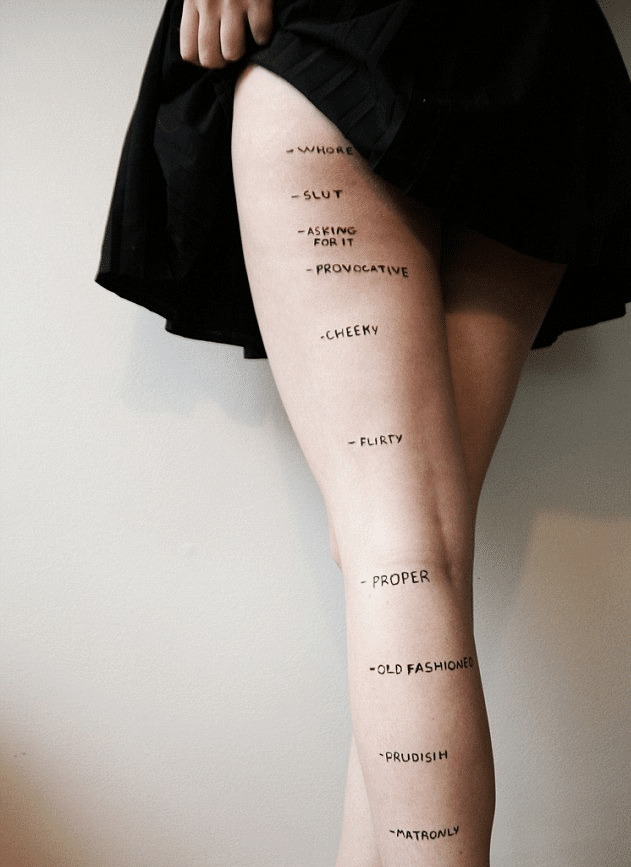The lengths of women’s skirts has always been up for a good debate, but an artist has given a possible inkling to what sort of a person the skirt wearer is.
Rosea Lake, 18, who is studying graphic design and illustration at Capilano University in Vancouver, posted a photograph titled Judgements.
The image shows a woman from behind with ten words written up her left leg indicating various hemlines, with ‘matronly’ scrawled at the bottom of her calf and ‘whore’ seen just below her buttocks.
Resting under her knee is the label ‘proper’ while ‘flirty’ sits above.
In just two weeks Miss Lake’s photo has attracted more than 270,000 comments as it has been shared on various social networking sites.
One commentator wrote on Facebook: ‘It doesn’t go down to the ankle, would that be graceful or elegant? I think so.’
While another showed their distaste adding: ‘Sure, let’s judge women like we did in the 1600’s. Disgusting!’
However Laura Beck of Jezebel said: ‘This picture really resonates with me. Like many women, I’ve been subjected to the finger length test to confirm my skirt was long enough at school and been asked, while wearing a maxidress, why I was so covered up. There’s some days a lady just can’t win.’
Miss Lake, who shot the picture when she was 17 as part of a high school project, said she wanted the piece to stop people jumping to conclusions when it comes to women and the way they dress.
She said: ‘I realized that when I looked at a woman in a short skirt I automatically thought ‘slut’ – I felt bad about that.
‘And I thought all women who wore hijabs were being oppressed. I thought about slut shaming and thought we need to get to a place where we are not judgmental.’
Due to demand she is now planning on selling prints of Judgements, however she says one minor tweak must be made first as the word ‘prudish’ is spelled incorrectly,
‘I didn’t catch that when I first did it. But for prints or other stuff I will fix it,’ she explained.
by Susan Floyd


